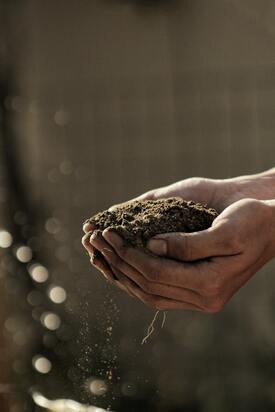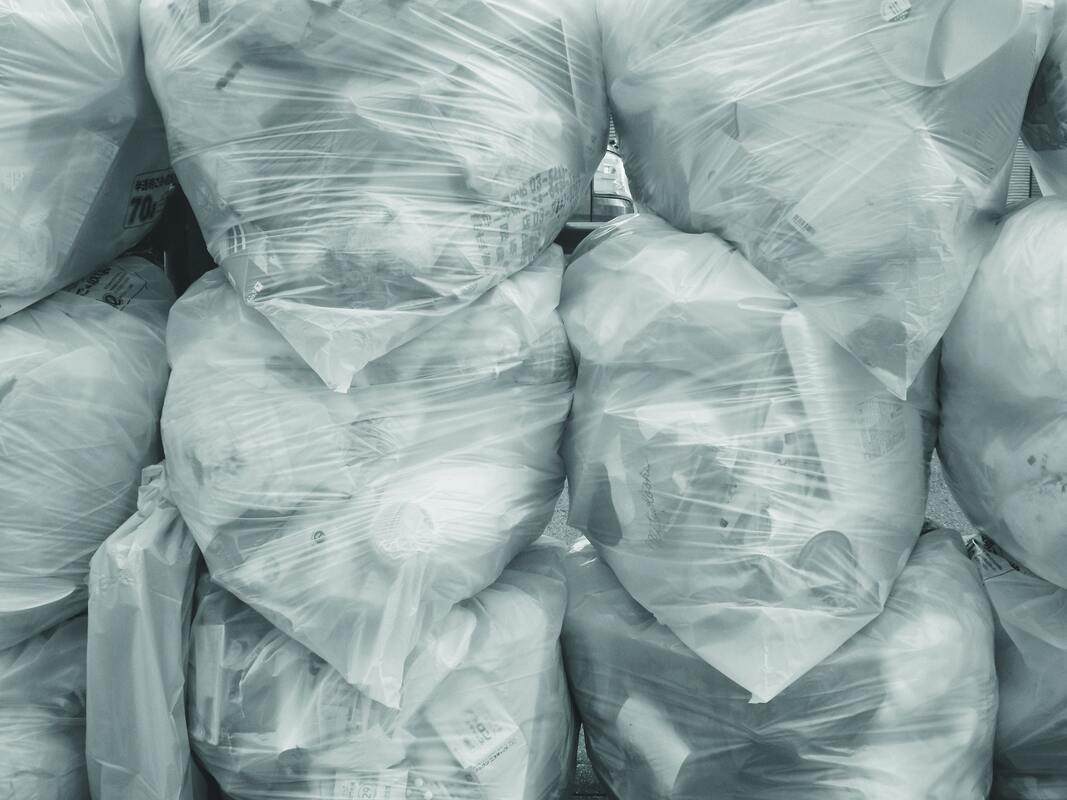|
Have you ever thought of making your own compost to fertilize and nourish your vegetable garden and flower beds? Backyard composting is one way to keep the city of Chadron a beautiful and healthy place to live. Composting is an easy and environmentally friendly way to recycle food scraps from your kitchen and dried leaves and grass clippings from your yard and turn them into nutrient rich fertilizer for the soil. To make a composting container only requires minimal supplies and the results are a natural healthy fertilizer that recycles waste that would otherwise end up in the landfill, and it helps to save money you would have spent on fertilizers and soil-enhancers to feed your plants.
Making compost does not require rocket science. It is a simple and cost-effective process. However, you must keep in mind that too much of one type of matter can affect the smell and texture of your compost. In order to keep your yard smelling pleasant, you have to tend what goes into your compost pile. Teulon (2014) says, “The ideal compost pile is a balance of brown and green matter. Too many leaves, which are high in carbon, can slow it down. Too many grass clippings, which are high in nitrogen, and the pile may starve itself of oxygen and go anaerobic (another word for smelly).” The “brown” or carbon matter in your compost could include straw, shredded cardboard, and dried leaves. Vegetable peelings and fresh grass clippings are considered “green” matter and will help to balance the pile because they are high in nitrogen. The cheapest method for composting is to dig a small hole somewhere in your yard and dump your compost there. This method does not require any tending, but it will take a lot longer for the matter to break down into usable compost, sometimes up to two years. If you want to speed up the composting process, you have to turn and mix your compost pile every once in a while, so that fresh air and insects can help to break it down faster. Because fresh air is one of the key factors to speeding up the composting process, many people choose to make compost bins using wood slats and chicken wire. They leave spaces between the wood so that all the compost in the bin is getting access to air. This helps the compost pile to break down evenly. Another method that is popular among hobby farmers and gardeners is the compost tumbler. Compost tumblers are obviously more expensive than just digging a hole in the ground or using a few pieces of wood, but they save a lot of time and effort that would be spent turning your compost pile and the composting process can be accelerated. Teulon (2014) states: "If your pile or drum holds more than 1 cubic metre of waste, the decomposition can become so rapid that temperatures soar, helping heat-loving, or thermophilic bacteria to flourish. If your compost is turned and aerated on a regular basis, the thermophilic bacteria will remain active and can raise temperatures upwards of 150°F (66°C), quickly breaking down plant material, killing off seeds and plant pathogens. Comparatively, a small composter or pile will not reach such high temperatures, which could lead to a composting time of roughly two years for the same amount of waste." A natural cooking process occurs which helps heat-loving bacteria to breakdown the material and change it into a useful fertilizer for your garden. Composting is a great way to keep Chadron beautiful because it recycles the kitchen scraps and yard waste that would otherwise go into the dumpster to rot and smell up our neighborhoods. The composted material fertilizes plants and makes them healthier and more productive. Flowers bloom for longer periods and vegetable gardens will be more productive. Composting is simple and cost effective, and is something that people of all ages can do to help the environment and beautify our community. Reference: Teulon, W. (2014). Backyard Composting. Gardens West, 28(6).
0 Comments
Recycling has been important to me since long before I came to Chadron State College, so naturally, when I moved into the dorms on campus my recycling habits followed me from home. In December of 2019, I had taken a tour of campus and was delighted to see blue recycling receptacles along the sidewalks. In passing they seemed very useful; three openings in each bin made a place for trash, glass, and cans. Upon arriving at CSC for the fall term, however, I discovered that all three openings in each bin emptied into a singular bag, which included trash, so no recycling was being done. I thought to myself, "What the heck? Isn't this a state college? Why aren't we recycling here? Who green-lighted this?" and continued to look for areas to put my plastics. There was no recycling bin by the dumpsters, in the cafeteria, the dorms, or any building for that matter.
The lack of proper receptacles did not keep me from recycling, though. Over the weeks I would put my rinsed recyclables in trash bags and take them to my hometown Aurora whenever I drove back to visit my family. Glass items that I could not recycle in either town I would keep rather than throwing them away, including pickle jars and kombucha bottles, which now live happily on my dorm room windowsill among my house plants. During the semester there would be weeks in between me collecting recyclables and taking them home to properly dispose of because I was only able to make the 6-hour trip a handful of times. As each day passed and bag after bag would fill, I realized that I, as a singular person, produce a lot of trash! This isn't to say I am wasteful, but over time I would bring three or four bulging bags of cardboard, plastic bottles, and milk jugs home. Looking at the number of recyclables I produce alone, I began to think about how many students there are on campus producing the same amount or more of recyclables every day. Personally, I utilize the cafeteria for the majority of my meals and only really need groceries for the weekend. I also utilize reusable bottles instead of buying plastic ones. Despite not buying a lot of products every week, I still somehow manage to produce loads of recyclables at the end of the month. As I sit here and type, three bags of plastics sit in my spare bedroom closet waiting for the semester to end so that I can eject them from my dorm and into my recycling bin at home. Keeping this in mind, I thought about the people who do the exact opposite. My suitemate, for example, buys a 24-pack of water bottles weekly, and I know for a fact he does not believe recycling is important. In his words, "Who cares?" so, he throws all 24 bottles in the garbage by the end of the week, and buys another 24 every weekend to repeat the cycle. Well, I care. Because there are hundreds of students on campus, and with no place to put their bottles and boxes, the dumpster is where all of it ends up. Out of the hundreds of students living on campus, how many do you think are going out of their way to drive their plastics to another city? Not a lot, because college kids don't have the time or energy to do that, let alone afford the gas. This is why the school needs to provide places for students to recycle. I love that we have water dispensing stations because they promote reusable bottles, but that is not enough to make up for the milk jugs, cardboard, tin cans, glass, and non-bottle plastics being thrown in the garbage on campus. I am definitely not an expert, but I had a few ideas regarding how to combat this problem. For the dorms, there are too many students using too many items to have just one receptacle in the lobby or outside. I think that having one bin per floor would allow easy access for each number of students, and promote recycling by being just a few feet away. Students leave their dorm to put their trash in the chute, so have recycling bins accessible too! But who would empty the bins when they are full? Well, the Resident Advisor of each floor could. Once per week, wheel the bins down via the elevator or stairs to larger receptacles outside. Recycling is not heavy like trash, most of it is air-filled bottles, empty cans, and cardboard, so bringing the bins down a flight of stairs would not be a hazardous task. Then the next problem would be getting all of it out of the city. There is a recycling drop-off in Rapid City according to Google Maps, and I think bi-monthly trips would allow us to remove the recycling collected at a productive rate. The rest needs more research to be done, and sadly this is just a humble blog, so I will not be doing that here today. I think the campus needs some sort of environmentalist club that could raise awareness, funds, and sponsor the implementation of a recycling program on campus. Perhaps a mini 'Keep Chadron Beautiful' student-led group? I don't know. What I do know is that we are throwing away an inappropriate amount of recyclable items on campus, and in the rest of the town as well. The population of Chadron is over 5,000, and if each person is producing even one trash bag worth of recyclables per month (and we all know that one bag per person per month is an unrealistically small hypothetical), that's well over 5,000 bags of items that are going in the garbage instead of being repurposed. We need to do better. |
AuthorStef Glass is the Education Coordinator for Keep Chadron Beautiful. She graduated from Chadron State College with her BA in English Literature and minors in History and Creative Writing in May of 2018. Archives
June 2022
Categories |
Proudly powered by Weebly



 RSS Feed
RSS Feed